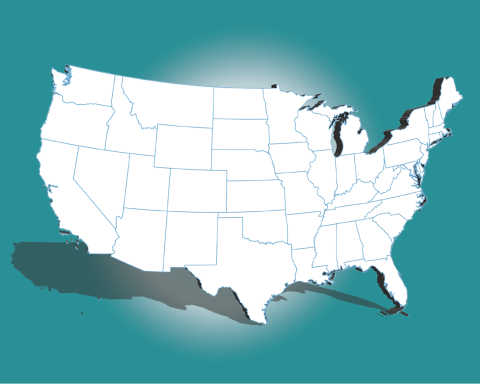Originally published in Ms. Magazine
Abortion has always been a fact of life. People in all occupations and walks of life need and seek abortion care. Arizona state Senator Eva Burch’s decision to share her need for abortion care while holding elected office in a state whose legislature and courts are grappling with abortion laws emphasizes that the personal is political. It also creates a powerful contrast between the relentless attempts by the anti-abortion movement to impose their worldview on the entire country and the many ways that people across the nation are fighting back—by sharing their stories, helping others get care, voting for abortion rights, and finding ways to overcome enormous obstacles to get an abortion.
Senator Burch is not alone. New data from the Guttmacher Institute shows an increase in abortions, with more people accessing abortion care in 2023 than any other year in the last decade. This may seem counterintuitive given the current landscape, where abortion is banned in 14 states following the June 2022 Dobbs decision that overturned Roe v. Wade. But these increases may in part be a testament to the enduring determination of people to seek the reproductive healthcare they need—like Senator Burch is now doing.
We also know that sometimes the burdens imposed on people who need abortions are too great to bear, leaving people unable to obtain care in the formal healthcare system or be forced to continue their pregnancies.
The 25 percent increase in abortion numbers in states without total bans was made possible by a combination of factors, including state policies and programs to expand abortion access, the herculean efforts of abortion funds and support networks who help people navigate bans, and expanded access to telemedicine for medication abortion. And we cannot underestimate the resiliency of abortion seekers themselves who know what is best for their health and lives. Our data shows huge increases in the number of people that traveled out of state for care—from 81,000 in 2020 to more than 160,000 in 2023.
Senator Burch, in her touching speech, reminded us that as harmful as abortion bans are, other kinds of restrictions also impact patient care. While the Arizona Supreme Court considers whether to let a total abortion ban go into effect, accessing abortion care there already requires patients make two separate trips, receive biased counseling, and get an ultrasound even if not medically necessary. The state’s Medicaid program does not cover abortion care, and people under 18 are required to get a parent’s permission. The list of onerous restrictions that do nothing to improve health outcomes goes on—the goal has always been to deter and dissuade people from seeking care.
Even states that have already banned abortion continue to find new ways to further stigmatize and restrict this basic healthcare. States like North Dakota want to force high school students to view misleading videos created by anti-abortion organizations while others are trying to limit our most basic rights by making it harder for people to leave their state to access legal abortion elsewhere. Four states introduced laws this year that would criminalize non-parent adults for supporting a young person who travels out of state for abortion care, modeled after an Idaho law passed last year currently not in effect.
Senator Burch also generously shared the larger context of her abortion story, which—as all abortion experiences—is part of a series of reproductive health needs and decisions she has faced. As the shocking Alabama Supreme Court ruling calling the legality of IVF into question recently showed us, the attacks on abortion are about more than abortion and impact the full spectrum of reproductive healthcare, including contraception and IVF.
Senator Burch’s bravery follows in the footsteps of other elected officials who have shared their stories, from Texas state Sen. Wendy Davis to Reps. Pramila Jayapal (D-Wash.) and Cori Bush (D-Mo.). It’s notable when people in positions of power are clear about the prevalence of and need for abortion care. It underscores that anyone who needs an abortion should be able to get timely, compassionate, and affordable abortion care in their community. This is especially true for those already marginalized by systemic racism and economic insecurity who are disproportionately impact by bans and restrictions.
The ongoing threats to our fundamental bodily autonomy continue in states across the country and, once again, at the U.S. Supreme Court. On Tuesday, March 26, the Court will hear a baseless case that could restrict mifepristone, one of two drugs used in the most common medication abortion regimen. Through personal stories and data, we are reminded not just that abortion is basic healthcare needed by people in all communities, but that the anti-abortion movement will stop at nothing until there is a nationwide ban on abortion.

